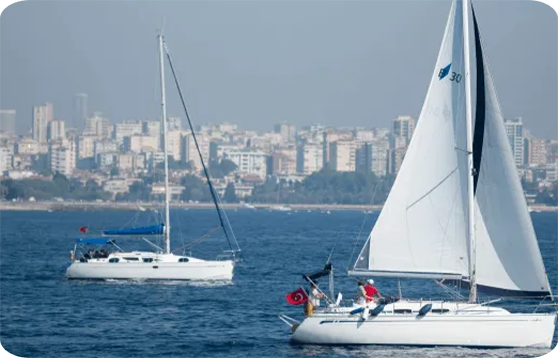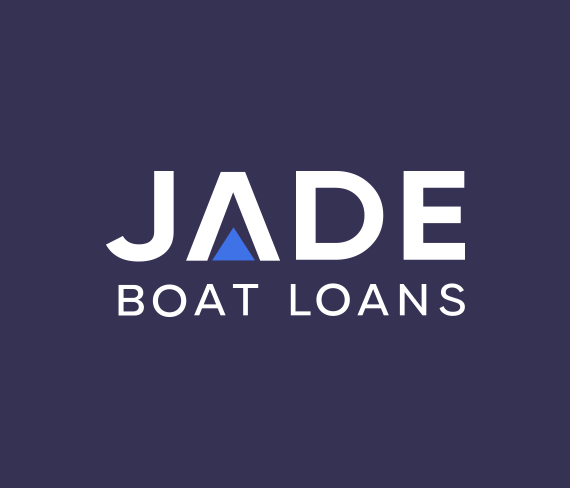If you’re new to the recreational boating scene, you may be daunted by the vast selection of different types of craft and manufacturers on the market. One of the features which becomes very obvious is the construction material. The hulls of modern boats are constructed from aluminium or alloy, different variants of fibreglass and there are also inflatables, which are also known as RIBS. Timber is traditionally a popular boat-building material but not as popular with contemporary boat-building techniques.
What’s the difference? What is best for your boating activity? Do different loans apply to different types of boats? We at Jade Boat Loans address some of those questions to assist you in the boat buying and financing process.
Aluminium Boats
Aluminium or alloy boats are found predominantly in the smaller trailer boat range. Quintrex is one of Australia’s longest-running aluminium boat manufacturer but there are several others building high-quality alloy boats – Formosa, Stessco, Stacer, Yellowfin and Bar Crusher to mention just a few. Alloy boats are often referred to as plate due to the construction method. The construction technique used by individual manufacturers determines the strength of the craft and its toughness to withstand rugged water conditions.
For the smaller range of aluminium boats, a pressed aluminium method is typically used with welded and/or riveting for strength. Plate construction is the general reference for a heavier gauge aluminium, usually 4-5mm in thickness with a base floor cut from the strong plate.
Aluminium boats can be rated for offshore, coastal and open water use and some for inshore, lakes or riverine use only. Tinnies or those made from the pressed aluminium technique tend to be smaller, lighter and best for a calmer, inland waters. The heavier plate boats are often in excess of 5 metres long and are often constructed to suit coastal and offshore activities such as fishing.
Fibreglass and Fibre Variants
Fibreglass is the most common construction material and is used in both sailing yachts and all types of cruisers including some trailer boats. There are a number of different construction methods used with this versatile material and variations in the fibre itself. Developments in fibre technology have resulted in many high-tech materials involved in boat building.
In general terms, the fibreglass hull and deck is formed via moulds and foam is often used to fill the hull to provide greater buoyancy. Fibreglass boats are available in a wide range of sizes and types with individual boat builders often adding their own special treatment. They range from jet skis and PWCs to luxury motor superyachts.
Click on the link to find out more information regarding fibreglass boats.
Boat Inflatables
Inflatables are a category of the boat that covers both simple roll-up style dinghies and heavy-duty RIBs or rigid inflatables. Smaller inflatables are very popular as tenders or dinghies for larger cruisers and yachts but can also make a fun craft for a range of water-based activities.
RIBs are a category in themselves and the range extends to some very high-priced, luxury style craft. They can be constructed to withstand heavy, rough water conditions as is seen when used by naval and other marine authorities.
For recreational use, inflatables are adaptable for fishing, tow sports and an outboard motor can be fitted to suit both the boat and the activity.
Boat Type Selection
Selecting which type of boat construction suits your boating activity will come down more to the boat itself. All the above-mentioned hull types are available in trailer boat models for a range of recreational activities. Aluminium tends to be used in smaller boats and those over 5 metres for fishing. General family runabouts and cuddy cabins and larger cruisers tend to have fibreglass hulls as do most yachts.
Boat Loan Types
The decision as to which boat loan suits your boat is much easier to make. The same selection of marine finance products covers all types of hull construction. The decision is primarily based on personal private use or for marine business applications.
Personal Boat Loans
The selection of loans for private, recreational boats includes:
Secured Boat Loan: A secured boat loan is by far the most popular type of loan as it suits all types of new and many used boats. The boat is the security against the loan and Jade Boat Loans offers fixed, cheap interest rates, fixed loan terms up to 7 years and fixed repayments. Lenders will have minimum loan amounts. If purchasing a small craft, check with us that the price is within our lender thresholds.
Unsecured Personal Loan for Boats: This type of loan suits older boats, those entering a boat-share arrangement and restoration boat projects where the boat is not available or suitable to be accepted as security.
Business Marine Finance
For businesses acquiring vessels for use in a business, we offer a range of finance options including the very popular Chattel Mortgage, Hire Purchase and Boat Leasing. The finance selection is based on the suitability of the features and benefits of each finance option for the individual business.
Boat Loan Interest Rates
The interest rates vary across the different types of boat loans with business rates always lower than private loans. To help consider your finance options, refer to our boat loan interest rate comparison chart. Jade Boat Loans addresses each boat loan application on an individual basis, sourcing specific quotes from specific lenders to suit each applicant and their boat. To get a better understanding of your lending options, feel free to utilise our boat finance repayment calculator. The age, condition and to some extent the hull construction of the boat will be taken into consideration when a loan offer is extended.
To discuss a quote for the boat of your choice, speak with us on 1300 000 003
DISCLAIMER: THE INFORMATION AND SPECIFIC DETAILS CONTAINED IN THE CONTENT OF THIS ARTICLE HAVE BEEN PREPARED AND ARE PRESENTED PURELY AS GENERAL INFORMATION AND NOT INTENDED AS THE ONLY SOURCE OF FINANCIAL ADVICE FOR BOAT BUYERS AND LOAN BORROWERS. FOR THOSE THAT CONSIDER THEY REQUIRE SPECIFIC ADVICE, THEY SHOULD CONSULT WITH A FINANCIAL ADVISOR. LIABILITY IS NOT ACCEPTED IN REGARD TO ERRORS AND MISPRESENTED DATA AND DETAILS HEREIN.

 "
alt="">
"
alt="">